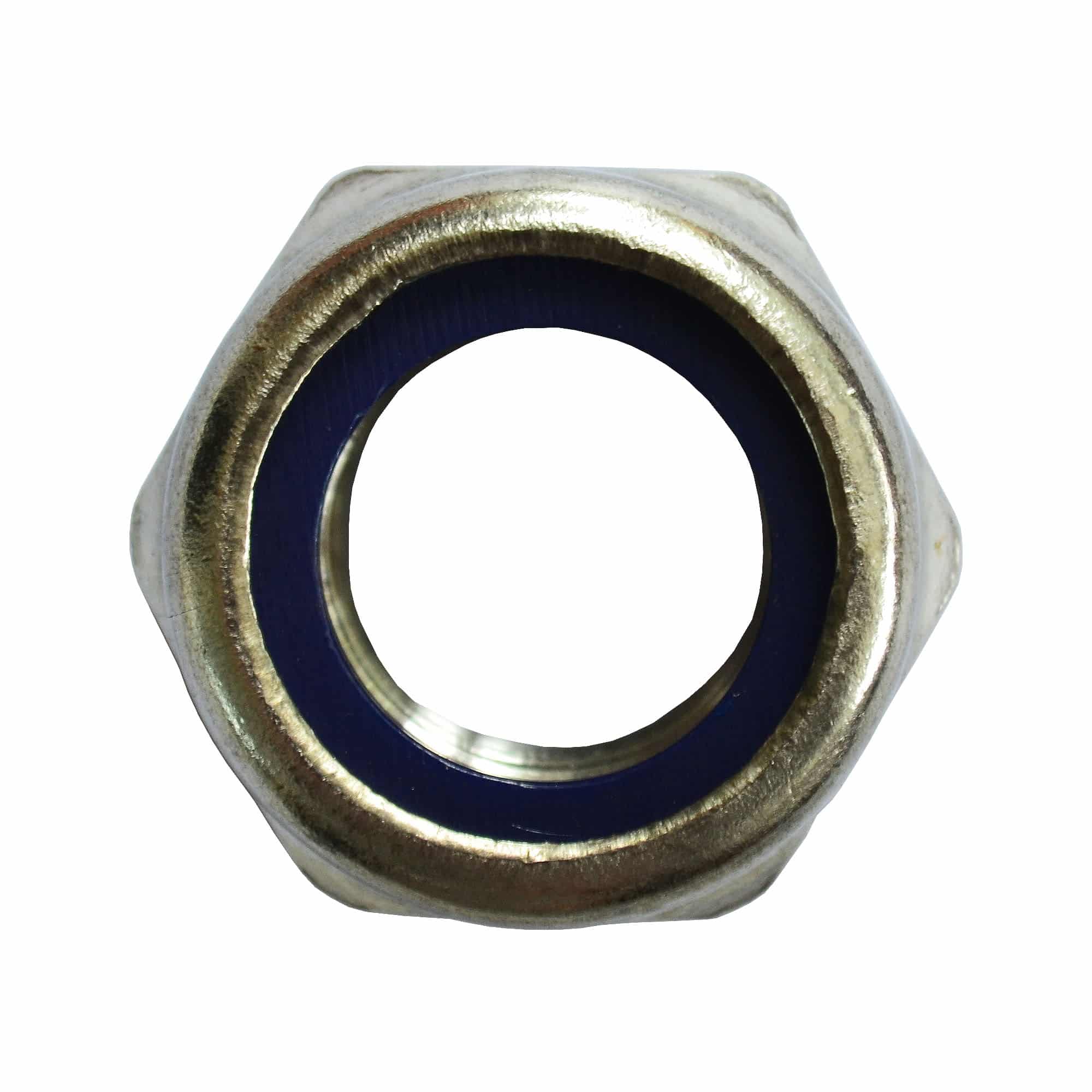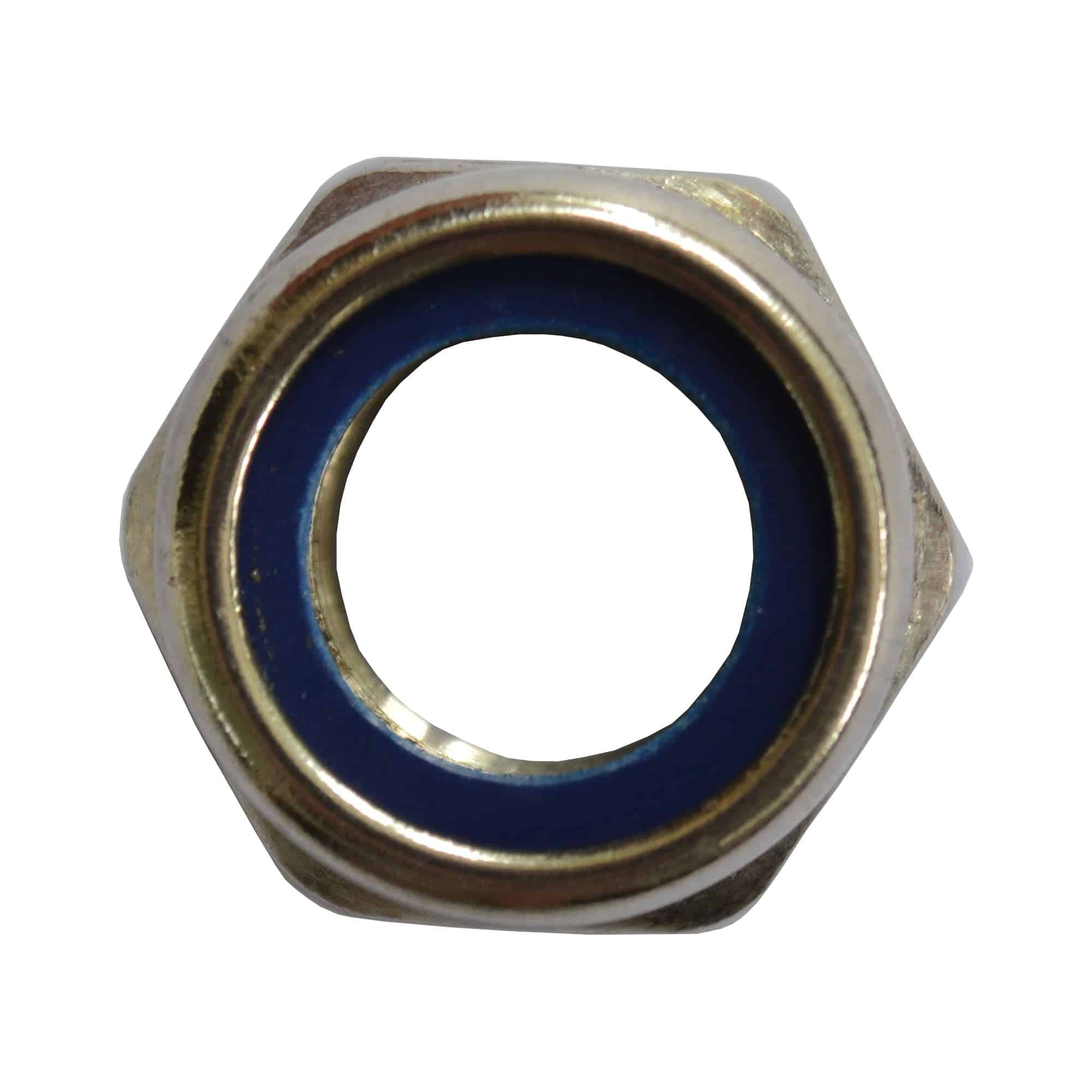- Massive Range
- FREE UK Delivery
- Rapid Dispatch
- Massive Range
- FREE UK Delivery
- Rapid Dispatch
- Massive Range
- FREE UK Delivery
- Rapid Dispatch
£2.56 – £134.76 inc VAT

Secure payments taken with:

This website is secured:
£ MULTIBUY SAVINGS – Order 3 For 10% Off
✔ Specialists In Rapid Shipments Of Any Size
✔ FREE UK Delivery Included
✔ Immediate Express Dispatch From Stock
✔ Tracked Delivery with Order Updates
✔ 30-Day Returns Accepted
@ ☏ Larger Pack Quantities Available
Looking for a durable, versatile and low maintenance locking nut that can stand up to tough marine environments? Look no further than the M10 Nyloc Nut Nylon Insert Locking Nut from Speciality Metals. Crafted from high-grade, corrosion-resistant A4 Grade 316 steel, this nyloc nut is engineered to be both secure and long-lasting. Whether you’re working on a boat, a jet ski, or any other marine-focused project, you can count on this nut to keep your materials safe and securely fastened, even in the harshest conditions. So why settle for an inferior locking nut when you can enjoy the peace of mind that comes with using the best? Choose the M10 Nyloc Nut Nylon Insert Locking Nut from Speciality Metals and make the smart choice today!

Top quality stainless steel Nyloc lock nut supplied straight from Warrington, UK.
Speciality Metals offer a massive range of metal products to suit all levels of budget and any size of job. These nuts are offered to compliment our range of nuts, bolts & washers. We pride ourselves on our low prices and rapid fulfilment. Our fasteners are available from immediate stock, so dispatch would be fair immediate.
M10 Nyloc Nuts offer an extra layer of protection when it comes to securing bolts and nuts. Nuts with nylon inserts provide a locking mechanism that makes them resistant to vibrations and loosening. Speciality Metals’ A4 Grade and 316 Grade are particularly durable and versatile options that can withstand harsh environments. Additionally, nylon inserts are low maintenance, making them an excellent choice for convenience-oriented individuals. Corrosion-resistant Nyloc Nuts M10 are a great option for those working in marine environments. Its many benefits make the nyloc nut a reliable choice for many industries.
Key product details:
Speciality Metals is known to be the United Kingdom’s best up-and-coming small-quantity metal company.
Furthermore we stock a vast range of plain wire mesh and perforated metal options that compliment our sheet metal range perfectly.
Over 50,000 customers of Specialty Metals are provided with fast, friendly customer service every year. We’re the place to try when you need metal of any shape and size. We’re based in Warrington, UK. We pride ourselves on our rapid turnaround and a large range of options.
The magnetic properties of Nyloc nuts depend on the material from which they are made. Nyloc nuts often come in different grades of stainless steel, such as 304, 316 or 316L. Generally speaking, most austenitic stainless steels, including 304 and 316 grades, are considered non-magnetic in their annealed condition. However, they may show some degree of magnetism if they have been cold-worked or welded, as the crystal structure can change under these conditions.
The nylon insert itself is non-magnetic, so it won’t contribute any magnetic properties to the Nyloc nut.
If magnetism is a concern for your application, you’ll want to confirm the specific magnetic properties of the grade of stainless steel you’re considering. This is especially important in applications like medical imaging or other sensitive electronic setups where magnetic properties could be disruptive.
Some industrial applications specifically require magnetic or non-magnetic properties, so always check the specifications for your particular use-case to ensure that you’re choosing the appropriate type of Nyloc nut.
The torque that should be applied to Nyloc nuts varies depending on a range of factors, including the size and grade of the nut, the material of the mating bolt, the application and the specific conditions under which the fastener will be used.
Here are some general guidelines:
Consult Manufacturer’s Guidelines: Always refer to the manufacturer’s specifications or technical data sheets for torque recommendations. These will usually provide torque values based on the size and material of the Nyloc nut.
Material Considerations: The material of the bolt or screw being used with the Nyloc nut can affect the torque requirements. For instance, a stainless steel bolt may have different torque specifications than a carbon steel bolt of the same size.
Application-Specific Requirements: Some applications may have specific torque requirements that exceed or are lower than the general guidelines. Always consult with engineers or other experts if you are unsure.
Tools: Use a calibrated torque wrench for precise torque control. This is especially important in critical applications like automotive or aerospace uses where precise torque is crucial for safety and performance.
Preload: Understanding the amount of preload (the clamping force exerted by the tightened nut) needed in your specific application can help you determine the appropriate torque values.
Environmental Factors: Factors like temperature, vibration and corrosion can impact the effectiveness of a torqued Nyloc nut. These factors may necessitate periodic re-torquing or replacement.
Safety: Always adhere to safety standards and guidelines when applying torque to ensure that neither the Nyloc nut nor the mating bolt fails due to over-torquing.
Nyloc nuts are designed to resist loosening under vibration and dynamic loads, thanks to the nylon insert that provides a locking mechanism. However, they are generally straightforward to remove using standard tools such as a wrench or socket set. The nylon insert increases the torque needed to both fasten and remove the nut, but it does not generally present a significant obstacle to removal.
Here are some considerations for removing Nyloc nuts:
Tools: Use the appropriate size of wrench or socket to ensure a good grip on the nut. An improperly sized tool could strip the corners of the nut, making it difficult to remove.
Reusability: While Nyloc nuts are sometimes reused in less-critical applications, it is generally not recommended to reuse them in critical applications. The nylon insert can lose its effectiveness after the nut has been removed and re-tightened multiple times.
Inspect After Removal: If you plan to reuse a Nyloc nut, inspect it carefully for any signs of wear or damage, especially to the nylon insert. Replace it if you notice any degradation.
Torque: Just as with installation, proper torque should be applied when removing the nut to avoid damaging the mating bolt or the nut itself. The torque needed for removal should be somewhat similar to the torque needed for installation, adjusted for any changes due to friction or material galling.
Corrosion: If the Nyloc nut is used in a corrosive environment, corrosion may make removal more difficult. In such cases, penetrating oils or other rust-removing solutions may be needed.
Heating: Be cautious when using heating methods to assist in removal, as excessive heat can degrade the nylon insert. If heat is necessary due to factors like thread-locking compounds, try to minimise the exposure to the nylon insert.
The suitability of Nyloc nuts for high-pressure applications largely depends on the grade of the stainless steel and the overall design of the bolted joint, rather than the Nyloc nut itself. While these nuts are designed to prevent loosening from vibration, they are not specifically engineered to withstand high internal pressures. The nylon insert is also not intended to handle such pressures and may deform or fail if exposed. For a high-pressure application, it’s critical to consult engineering specifications and possibly employ additional sealing mechanisms like gaskets or O-rings. Factors like material strength, proper torque and environmental conditions must all be carefully considered. Specialised fasteners that meet industry-specific testing and certification may also be necessary. Therefore, while Nyloc nuts can be part of a high-pressure assembly, their effectiveness in such conditions should be validated through engineering analysis and testing.
Check out our recent article ‘Unlocking the Benefits of Nyloc Nuts: The Ultimate Guide‘ for a deeper dive into nyloc nuts. Our goal for our blogs and help guides is to answer as many questions as possible to help to explain the possibilities of mesh to our customers.
We are also very proud of our ever expanding YouTube channel.
Contact us today if you have any questions at all. We are always really keen to help in any way that we can.
We are also very proud of our highly popular eBay store, check us out there too.
Thank you for checking out our product.
£13.50 – £260.40 inc VAT

£13.50 – £260.40 inc VAT

Speciality Metals
Unit 1, Farrell Street, Warrington,
Cheshire, WA1 2WW, United Kingdom
Quick Links
Payment Options
